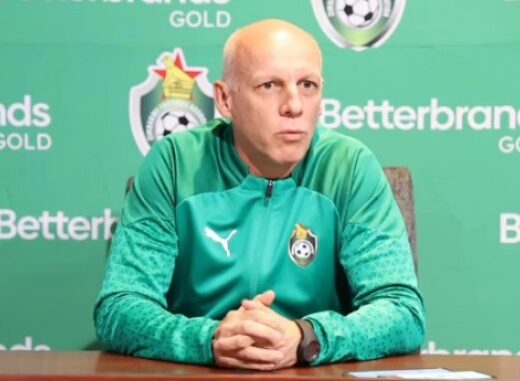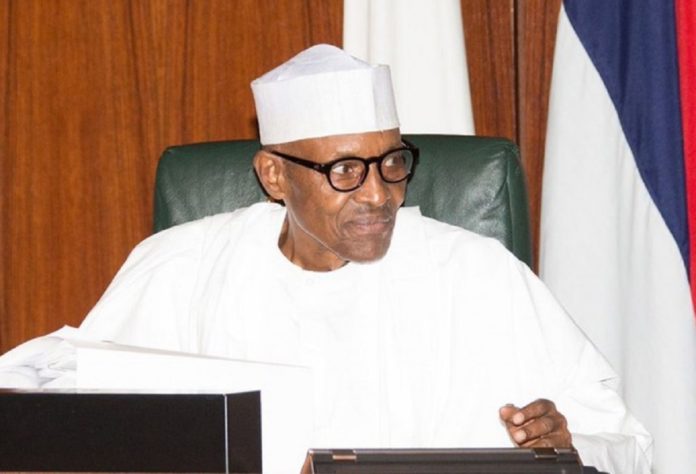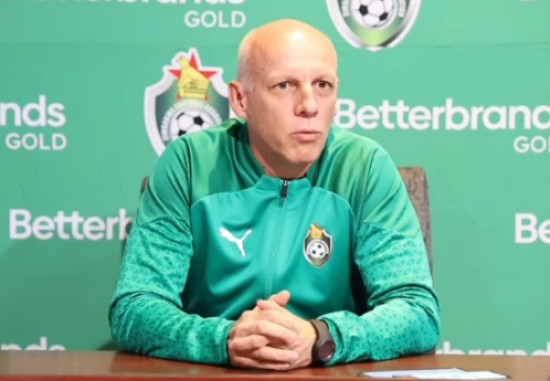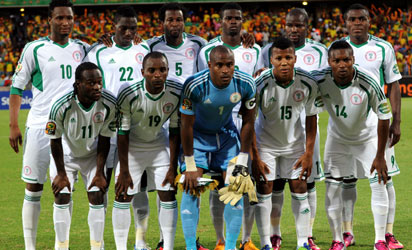This is dedicated in prayers to all the people who unfortunately tested positive of Covid-19. May God Almighty endow humankind with the knowledge and wisdom to produce cure for the virus!
Introduction
As we approach April 14, 2020, the close of the two weeks lockdown of Abuja, Lagos and Ogun, expectedly government will be reviewing progress the nation is making in terms of containing the spread of Covid-19 in the country. Noting that as at Sunday, March 29, 2020 when President Buhari addressed the nation and declared the lockdown, Nigeria had 111 confirmed cases. Also, recognising that by Thursday, April 9, 2020, we had 288 confirmed cases, an increase of 177 in 10 days, which gives an average of at least 17 confirmed cases per day. It then means that by Tuesday, April 14, 2020, Nigerians may be expecting a minimum of another 85 confirmed cases, which could raise the total confirmed cases in the country to more than 370.
With such projection, the question to ask is; is Nigeria’s Covid-19 curve being flattened or the country is approaching the point when it will begin to experience the exponential rise in the number of cases? We are told by the Nigeria Centre for Disease Control (NCDC) and especially the Lagos State Commissioner of Health, Prof. Akin Abayomi that two important determining factors to help flattened the Covid-19 curve are lockdown and community ownership. In the case of lockdown, it will help the process of contact tracing, isolation, treatment and therefore confining cases to specific location and prevent spread to other locations. Community ownership on the other hand, will enhance the capacity of government for contact tracing, isolation, treatment and preventing cases from being transmitted within communities.
What has been the assessment so far? Assessment of how well as a nation, we are containing the spread of Covid-19 nationally and within communities will be critical determinant of whether the two weeks lockdown of Abuja, Lagos and Ogun is about to come to an end or extended. If it is to be extended, will it also be extended to other parts of the country? Is there any possibility that it will end in any of the three locations (Abuja, Lagos and Ogun) on Tuesday, April 14, 2020?
If records of cases from states is any reference, with Lagos and FCT recording daily increases and now having 158 and 54 confirmed cases respectively, it simply means that the spread is on the increase. Perhaps, Ogun state could be an exception having stablised with only 4 cases for more than a week. However, being neighbours to Lagos, and with cases in Lagos on the increase, the possibility of relaxing or ending the lockdown may depend on the status of Lagos.
With number of cases spreading to more states and also on the increase within states, the possibility of extending the lockdown to other states could be high. Again with number of cases in Osun, Edo, Oyo, Bauchi, Akwa Ibom, Kaduna, Delta, Enugu, Ekiti, Rivers, Benue, Katsina and Ondo states respectively now being 20, 12, 11, 8, 5, 2, 2, 2, 2, 2, 1 and 1, these are readily candidates for the extension of the lockdown. Assuming the number of cases is to be the determinant of whether the lockdown will be extended beyond April 14, 2020, will that be sufficient to contain the spread? Given that after the lockdown of Abuja, Lagos and Ogun, more states recorded new cases, wouldn’t this be indicative of the need to have a national lockdown?
Conspiracy Theories and Problems of Ownership
Factors that would influence the final decision of government on lockdown is certainly beyond the number of cases. Other assessments including capacity to enforce compliance will also have to be considered. Issues of support and ownership are important considerations. Part of the big obstacle as it is today appears to be that most Nigerians are yet to accept that Covid-19 constitute threat to their personal lives. Narratives of false conspiracy theories being propagated across all social strata in the country – religious, traditional, interest groups and even medical practitioners don’t seem to be helping matters. It is either Covid-19 is associated with G5 network and all the superpower competition between China and US, some biological warfare, politics of vaccine targeted at population control, to the ridiculous issue of distrust and allegations of strategy to divert public resources by political office holders in the country.
The list of conspiracy theory narratives is long and increasing perhaps on daily basis. In all, none of the conspiracy theories dispute the fact that Covid-19 threaten human life on a global scale. While most of the conspiracy theories are global in origin and proven not be true empirically and scientifically, Nigerians still find them attractive simply because somehow, almost all the narratives resonate with Nigerians on account of inability of citizens to trust government. Sadly, not even the alarming reports of Covid-19 cases coming from other parts of the world is making Nigerians to consider teaming up with government to contain the spread.
Take for instance the case of the message that was circulated in social media some few days ago, drawing attention to experiences of countries like Italy, United States, France, Germany, Spain and Iran that within a space of 5 – 6 weeks recorded exponential rise in number of cases from 21, 16, 18, 18, 25 and 5 to 86,498, 100,037, 32,964, 50,178, 64,059 and 32,332 respectively. As at Friday, April 10, 2020, these countries respectively have 143,626, 468,895, 117,749, 119,244, 153,222 and 66,220 cases. Records of death from these cases have similarly shot up to 18,279, 16,697, 12,210, 2,678, 15,447 and 4,110 respectively.
These records hardly convinced Nigerians on the need to ensure that the fight against the spread of Covid-19 in the country succeed. Instead, it is perceived by many as an attempt by government and their supporters to divert attention from the issue of ensuring that it (government) provide palliatives to Nigerians for the lockdown to succeed. This opens the gate for another variant of conspiracy theory aimed at diverting attention from some alleged corrupt practices around the execution of the fight against the spread of Covid-19 in the country.
Three issues can be used to demonstrate this. The first was the controversy around the issue of Chinese medical team coming to assist Nigeria. Many Nigerians, including Nigerian Medical Association (NMA) opposed the decision of the Presidential Task Force (PTF) on Covid-19 to accept the offer for assistance from the Chinese medical team. Some alleged that Italy began to experience exponential increases in number of Covid-19 cases after accepting similar assistance from Chinese. The whole issue around the support being offered was reduced to sentimental considerations. The national conversation wasn’t around the question of evaluating preparedness to contain the spread of Covid-19.
Secondly, around the same period when the issue of the assistance from Chinese medical team dominated our media, on Tuesday, April 6, 2020, there was the report of the session between the leadership of the National Assembly, led by both the Senate President, Sen. Ahmed Lawal and Speaker of the House of Representatives, Rt. Hon. Femi Gbajabiamila, on the one hand and Haj. Sadiya Umar Farouk, Minister of Humanitarian Affairs and Disaster Management, on the other hand. The leadership of the National Assembly were reported to have queried the Minister about management of palliatives to cushion the effect of the lockdown. In particular, there was the question of the database being used to disburse the conditional cash transfer of N20,000 to qualified beneficiaries.
The third event was the unfortunate fire in the office of the Accountant General of the Federation on Wednesday, April 7, 2020. Although completely unrelated to the whole question of containing the spread of Covid-19 in the country, some Nigerians alleged that the fire outbreak in the office of the Accountant General was because of the insistence of the leadership of the National Assembly that all resources being disbursed as palliative under the Covid-19 campaign, must be accounted for. Some even alleged that N2 trillion has already been released by the Federal Government. Across most social media platforms, the allegation was that the fire outbreak in the Accountant General Office was aimed at destroying records and therefore sabotaging any potential investigation into the disbursement of palliatives to citizens, including the N20,000 conditional cash transfer.
Shift from Containing Spread to Management of Palliatives
Although many officials of government attempted to respond to these allegations with clarifications, which should have helped to douse the public suspicion around issues of resource management and disbursement, the problem of trust remains a strong factor militating against citizens ownership of social distancing initiatives of government, including lockdown. What is very clear is that for many citizens, the debate is not about containing the spread of Covid-19. Rather, the issue of management of public resources directed at cushioning the effect of the lockdown is the main concern.
As a result, unfortunately, for most part of the period since Sunday, March 31, 2020 when the Federal Government directed lockdown of Abuja, Lagos and Ogun commenced, government was unable to achieve the needed public ownership of the fight against the spread of Covid-19. Without doubt, both the PTF, led by the Secretary to the Federal Government, Mr. Boss Mustapha and State Governments, especially Lagos State have been briefing Nigerians on daily basis, but given the high focus on palliatives as requirement for the fight against Covid-19 to succeed, the unintended national impression has been created to the effect that Covid-19 is simply a problem of government. At least, that would appear to be the dominant perception by most Nigerians.
This is quite worrisome. The fact is that given the poor state of our hospitals, if we are unable to contain the spread of Covid-19 in Nigeria, the experiences of Italy, Spain, United States, France, etc. will be child play. Should that happen, records of cases and deaths could be phenomenal. With combinations of high incidences and poor records of citizens in the country having medical conditions bordering on tuberculosis, high blood pressure, diabetes, asthma, etc. it is hard to imagine how, as a nation we want to risk such a possibility.
Issues of Public Engagement and Recommendations
Maybe it is the perilous nature of our orientation that is playing out. Unfortunately, it will appear that low engagement strategy by the PTF on the Covid-19 campaign is also reducing citizens’ ability to own the fight against the spread in the country. This is not in any way passing any judgment on the leadership of the PTF in the fight against Covid-19 but to highlight areas requiring urgent attention in order that Nigeria is able to succeed in the fight against the spread of Covid-19.
What are these recommendations? First, the PTF need to broaden the scope of its membership at two levels. It needs to approach the question of expansion based on the strategy of using communication to mobilise the participation of everyone both governmental and non-governmental. Communication should not be about simply passing information to citizens about what government is doing. It should be more about accommodating the views and interests of Nigerians through their representatives. This can come about through the deployment of some approaches that allows identified representatives to interact with members of the PTF and through such interactions influence decisions.
It is good to have all senior federal government functionaries driving the process and consulting other arms of governments – National Assembly and Governors. This however can be strengthened by going beyond consultations. The reality is that consultation alone, will hardly produce the needed ownership and synergy of initiatives even within governmental structures. In fact, one can argue that some of the critical observations of the leadership of the National Assembly from the session with the Minister of Humanitarian Affairs and more recently with the PTF on Thursday, April 9, 2020 is a confirmation of the limitations of consultations. What is required is that, depending on the terms of reference of the PTF as given by the President, the PTF should consider co-opting members of the National Assembly to join the Committee.
Similarly, is the issue of coordinating with states. The PTF Chairman, Mr. Boss Mustapha, has reported at least in two of its daily media briefing sessions that they have had teleconferencing with Governors. The reality of ensuring successful containment of the spread of Covid-19 will however be hinged on the effectiveness of states to enforce measures around social distancing including lockdown. Although, it is true that the Federal Government exercises jurisdiction over agencies of law enforcement, the truth is that in our context law enforcement alone will not guarantee success. Some of the factors that are responsible for this include the fact that our law enforcement agencies are already overstretched with all the problems of insecurity in the country.
In addition, enforcement shouldn’t be simply about compelling citizens but more about securing citizens’ consent to abide by government instructions. If state governments are to play their roles, there will be the need to configure the PTF in such a way that it is able to accommodate the participation of state governments. This could lead to the issue of possibly organising the PTF into sub-teams deployed to each geo-political zone based on which Secretaries to State Governments and other nominees can be also coopted into the PTF.
Accordingly, instead of working from one location in the zone they could be mobile across states in the zones. It may even be possible that each of the zonal teams can further be sub-divide into state teams and expanded to have more membership. For instance, all Senators, House of Representatives and State Assembly members can be part of a state team and their membership should not add to the financial cost of the state team. In fact, the cost of state teams may even be mobilised by the state governments independently.
Engaging Non-Governmental Actors
With a mobile setup, the PTF could be able to develop clear engagement templates for each team across all the zones and task them to engage all social interests with the objective of securing the buy-in of citizens to comply with government social distancing directives including lockdown. To strengthen the PTF teams in each zone or states as the case may be, activities should include consultative meetings with interest groups notably traditional rulers, religious leaders, political party leaders (multi-party), local government chairmen, organised private sector, organised labour, civil society, women groups, persons with disability, etc.
Part of the challenge will be the question of managing financial expectations. This is a big challenge especially given that citizens just believe that government has all the resources in the world. Part of the issue therefore is for government and the PTF to make clear declarations that every group and all Nigerians must be ready to make sacrifices. If Ministers and National Assembly members are already sacrificing their salaries, this should not be a difficult call. Perhaps, the only addition should be that all members of the PTF at whatever level will not be entitled for any sitting allowance. Afterall, this is really an emergency assignment bordering on the need to provide leadership for Nigerians to contain the spread of Covid-19 which is a threat to the lives of citizens. Public servants and leaders should be called upon to serve based on disposition to make sacrifices. This will remarkably help to resolve all insinuations around speculated rates to be drawn by members of the PTF.
Palliatives vs Sacrifices
Once the PTF is able to configure itself this way, the issue of palliatives and how to administer it can be easily handled. It is important that both the PTF and the Presidency are able to correct problems of trust and ensure that it is able to minimise all distractive debates around administering palliatives. For instance, once schools are closed, there is no need talking of school feeding. This does not mean, the resources for the school feeding cannot be directed to support the families of the schoolchildren for the duration of the fight against Covid-19. It is simply a matter of redirecting how it is disbursed. In any case, whether we recognise that or not, so long as schools are closed, method of feeding those children have to change.
On the whole, we need to appeal to both the PTF and Ministry of Humanitarian Affairs to try and assist the government to refocus national conversations around the fight against the spread of Covid-19 in the country away from issues of management of the palliatives. In some ways, the palliatives that should be the subject of national debate should not be the ones under the National Social Investment Programme (NSIP). Important as the NSIP is, the PTF should be able to deliberate on nature and scope of the palliatives and decide on how best it should be handled in order to succeed in this critical fight against Covid-19.
While considerations can be given for utilising some of the resources domiciled in the NSIP, as much as possible government and the PTF need to avoid a situation whereby the debate is reduced to academic exercise. It is important that everyone in government and the PTF is reminded about the fact that this is a fight that we must succeed. In fact, it is a fight that required that we adopt the Machiavellian logic of the end justify the means, which should imply that any approach that should save the lives of Nigerians should be welcome. In particular, members of the PTF should bear in mind that they have the overriding burden to support President Muhammadu Buhari to succeed. Given that President Buhari’s disposition is one of non-interference once he delegates a responsibility, allowing factors of distractions to dominate national conversations instead of the sacrifice members of the PTF and government officials will be making could potentially undermine government.
On the whole, deciding on the question of palliatives, in whatever way the PTF want to approach it should not be about being defensive. The best approach should be to quietly change the approach. Part of the problem associated with the current practice is that it undermines social distancing practices including the lockout. This has to change. One of the recommended considerations could be to ensure that traditional, religious and community leaders commit themselves to mobilise citizens to observe social distancing and lockdown. In other words, is it possible to get them to participate in the process of disbursement?
One of the expected criticisms could be that non-governmental leaders may embezzle the resources. Interestingly, this is also what is being alleged against government management of the resources. Shouldn’t it therefore be better for government to transfer the burden of disbursement to other non-governmental leaders and seek to strengthen accountability through combinations of sanction and incentives? For instance, wouldn’t it be possible to structure disbursement of the palliatives based on some specific executions of activities to enforce social distancing? Through this, compliance with suspension of Muslim and Christian congregations, wedding, naming and burial ceremonies and practices could be the focus, such that qualification for disbursement in a particular community is based on level of compliance.
Other incentives such as community recognition, which should confer access to some facilities including targeted incentives to citizens in that community and provision of some infrastructure may also be added. The point is that there has to be some new approaches to entice citizens to support all government measures towards ensuring success in the fight against the spread of Covid-19. Deployment of strategies to win the support of citizens through active involvement of leaders across all strata of Nigerian society will be very important.
Conclusion and Appeal
The message from all the countries that have succeeded in containing or bringing the spread of Covid-19 under some control is very clear. Government will only succeed based on citizens’ support. Such a support is only possible if citizens are able to trust government, on the one hand, and on the other hand, government is also able to accept the partnership of citizens. Given our reality in the country, this is not going to be easy. It will require the capacity of leaders in government, especially the PTF to come up with initiatives that can energise activities that should be appealing to citizens.
It is tempting to dismiss such proposals and continue to handle the challenge at hand about containing the spread of Covid-19 based on business as usual approaches. In the event that such an approach leads to exponential rise in cases of Covid-19, both leaders in government and non-governmental spheres must accept responsibility. At that point, no blame game can save the situation, or worst still, recover any life lost. If our leaders, whether in government or out of government want to save the situation, the time to act is now.
Already, business as usual practices is making religious leaders to compel our leaders in government to relax the lockdown in many states and based on that mosques and churches congregations are returning with the high risks of getting the virus to spread faster in our society. Chances are that should this be the case, once the spread begin to produce the exponential figures of cases of positive person and unfortunate death, citizens together with religious leaders will then turn and start blaming government. In return, government may argue that it is because citizens refuse to observe social distancing and comply with directives of lockdown.
Why should we allow things to get to this level? Why can’t our leaders lead us in this moment when it is only our capacity to make the right sacrifices that could help to contain the spread of Covid-19 and therefore ensure that we are able to save the lives of our citizens? If community ownership is required to achieve this, isn’t it necessary that it is only through the active support of non-governmental leaders that we can achieve community ownership? In any event, will Covid-19 spare the non-governmental leaders or any category of citizen?
We may want to respond to these questions based on strategies to protect our comfort zones. In which case, religious leaders may want to protect their powers based on insisting that religious congregations hold. And traditional and other leaders may also choose to be indifferent. Government may also continue to act based on declarations and expect citizens to respect them. All these will only translate to politicising the fight against Covid-19. In the end, no matter where we stand, we are all as individuals vulnerable to Covid-19 irrespective of whether we are ordinary citizens, leaders in or out of government, Muslim, Christian, traditional, organised private sector, organised labour, women or persons with disability, etc.
Finally, it is important to highlight the point that the most important requirement that will ensure success in the fight against Covid-19 is the ability of all Nigerians to make the right sacrifices. Inability to direct initiatives in our fight against Covid-19 will only reproduce all our national differences, whether, ethnic, religious, gender, social and economic status, etc. Part of what the fight against Covid-19 require in the circumstance is that we must all remember that first and foremost we are human beings. In any case, beyond the fight against Covid-19, there will be the question of building on our successes and directing it towards creating a new foundation for a stronger health sector in the country. Such a foundation can only be guaranteed based on good partnership between government and citizens. That is only possible if we are able to, as a nation, rise to this challenge of Covid-19, which calls to question our humanity.
Like Simon Kolawole rightly and aptly put it in his article of Sunday, April 5, 2020, Human Race under Siege, using the statement, which he wasn’t sure came from the American Artist, Susan Boerner, “We were all humans until race disconnected us, religion separated us, politics divided us and wealth classified us.” Simon went on to argue that “We are all in panic mode. We are desperately looking for a solution and we don’t care the race or religion of who finds it. We do not have enough time to be analysing our artificial divides.” There is no better way to capture the reality we face today. However, considered, the appeal is: Nigerian citizens and government should be united in this fight against Covid-19.
This does not represent the view of any APC Governor or the Progressive Governors Forum
Salihu Moh. Lukman
Progressive Governors Forum
Asokoro, Abuja
April 10, 2020
You may be interested

2026 WCQ: Rwanda Midfielder Manishimwe Keen To Face Super Eagles
Webby - March 17, 2025Rwanda midfielder Djabel Manishimwe says he is fired up for the clash with the Super Eagles of Nigeria. Manishimwe has…

2026 WCQ: Zimbabwe Suffer Injury Blow Ahead Super Eagles Game
Webby - March 17, 2025Warriors of Zimbabwe suffered a blow ahead of their 2026 FIFA World Cup qualifiers with Nigeria’s Super Eagles and Benin…

Carabao Cup Final: Newcastle Beat Liverpool 2-1, Clinch First Major Title In 70 Years
Webby - March 16, 2025Newcastle United ended their wait for a first major domestic trophy in 70 years after defeating Liverpool 2-1 in the…






















![American Pastor, David Wilson Seen Eating The Box Of Woman Who Isn’t His Wife [Video]](https://onlinenigeria.com/wp-content/uploads/2019/10/american-pastor-david-wilson-seen-eating-the-box-of-woman-who-isnt-his-wife-video-150x150.jpg)








